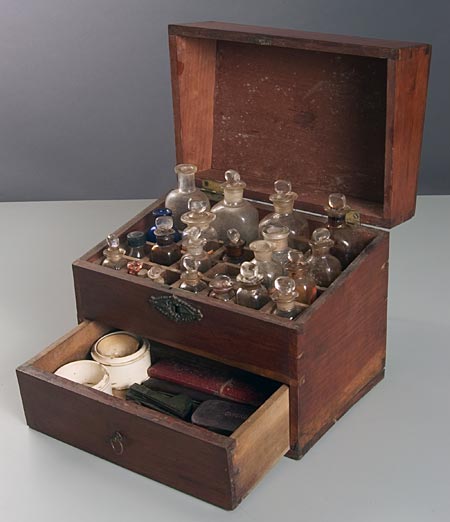Ongoing concern over the dangers of smallpox led the General Assembly on January 30, 1798, to prohibit anyone from bringing into Kentucky "the smallpox or any variolous or infectious matter of the said distemper, with a purpose to inoculate any person or persons whatsoever." The penalty for doing so was a one-thousand-pound fine "for every offence so committed." Recognizing, however, that inoculation may "under peculiar circumstances, be not only a prudent, but necessary means of securing those who are unavoidably exposed to the distemper in the natural way," the General Assembly did permit inoculation under close supervision by local magistrates. Inoculations could be given only by those licensed to do so with strict provisions for publicly posted quarantines not only of those inoculated but also of all those who had been exposed to the disease until they could be safely pronounced free of it. Each violation of these provisions was punishable by a fine of forty shillings.

Calk medicine chest. William Calk (1740-1823) journeyed to Kentucky in 1775 and helped survey the first lots at Boonesborough. Later he moved his wife Sarah and their family to a farm on Hinkston Creek near Mt. Sterling. The family maintained a collection of Calk's pioneer materials through the years. This piece is believed to have been originally used by Calk; however other family members used it over the years and replaced bottles and medical tools contained within. Donated by Helen Perkins, Sharon Nesmith, Patricia Waggener, and Caswell Lane, Kentucky Historical Society Collections.
